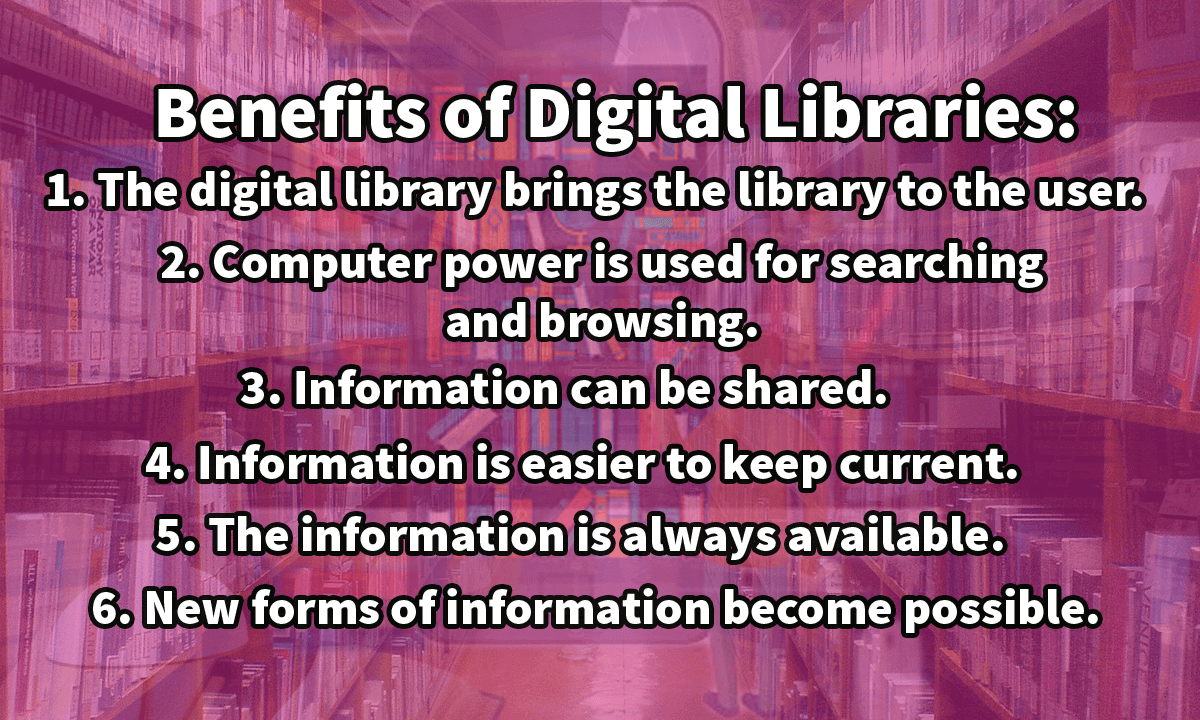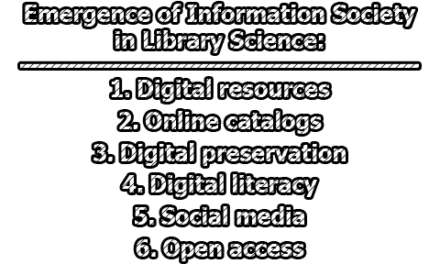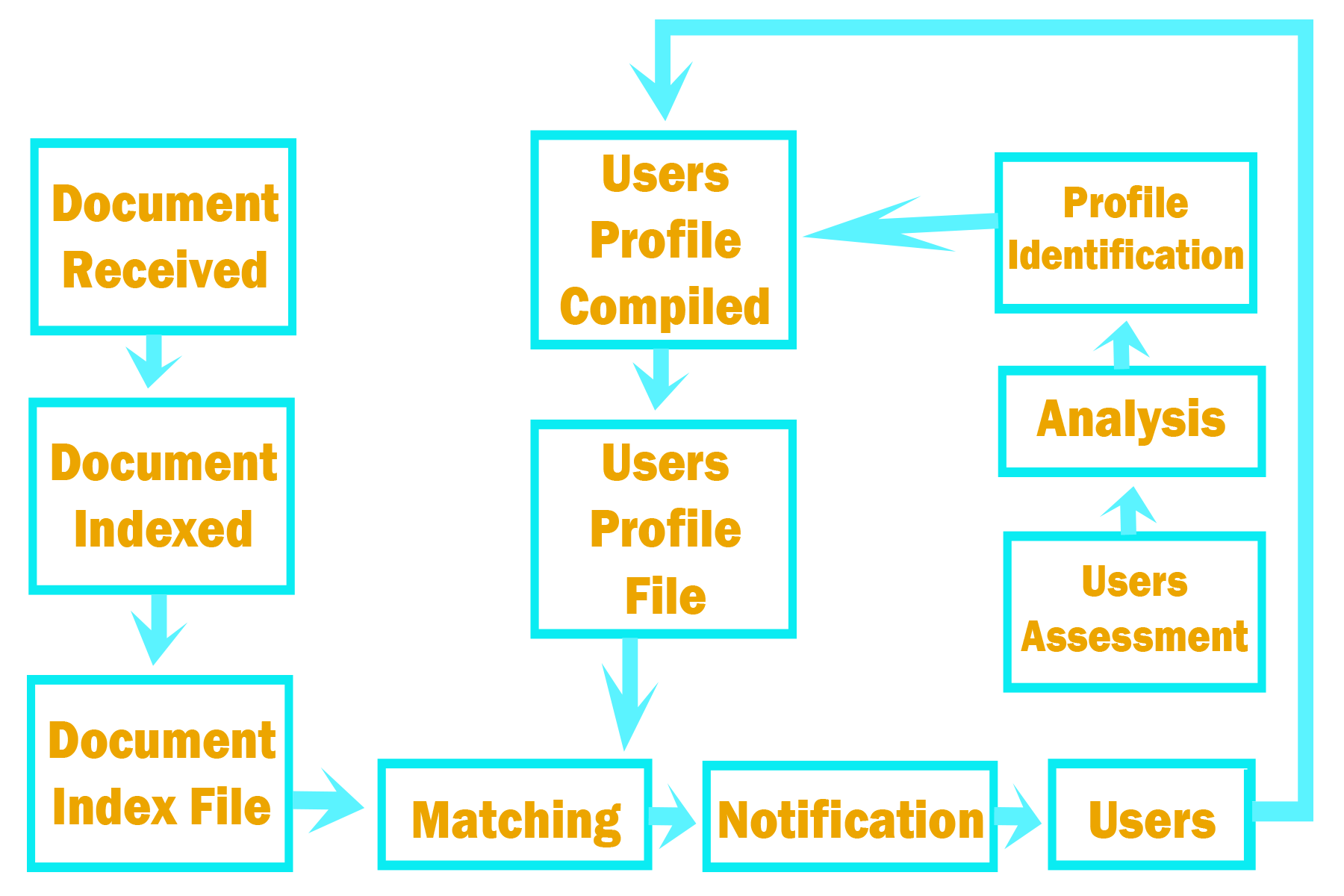Benefits of Digital Libraries:
Here are some of the potential benefits of digital libraries are given below;
i. The digital library brings the library to the user: A digital library brings the information to the user’s desk, either at work or at home, making it easier to use and hence increasing its usage. With a digital library on the desktop, a user need never visit a library building. The library is wherever there are a personal computer and a network connection.
ii. Computer power is used for searching and browsing: Computer systems are already better than manual methods for finding information. They are not as good as everybody would like, but they are good and improving steadily. Computers are particularly useful for reference work that involves repeated leaps from one source of information to another.
iii. Information can be shared: Libraries and archives contain much information that is unique. Placing digital information on a network makes it available to everybody. Many digital libraries or electronic publications are maintained at a single central site, perhaps with a few duplicate copies strategically placed around the world. This is a vast improvement over expensive physical duplication of little-used material or the inconvenience of unique material that is inaccessible without traveling to the location where it is stored.
iv. Information is easier to keep current: Much important information needs to be brought up to date continually. Printed materials are awkward to update since the entire document must be reprinted; all copies of the old version must be tracked down and replaced. Keeping information current is much less of a problem when the definitive version is in digital format and stored on a central computer. Many libraries provide online the text of reference works, such as directories or encyclopedias. Whenever revisions are received from the publisher, they are installed on the library’s computer. The new versions are available immediately.
v. The information is always available: The doors of the digital library never close; information is much more likely to be available when and where the user wants it.
vi. New forms of information become possible: Most of what is stored in a conventional library are printed on paper, yet print is not always the best way to record and disseminate information. A database may be the best way to store census data so that it can be analyzed by the computer; satellite data can be rendered in many different ways; a mathematics library can store mathematical expressions, not as ink marks on paper but as computer symbols to be manipulated by programs such as Mathematica or Maple.
Each of the benefits described above can be seen in existing digital libraries. There is another group of potential benefits, which have not yet been demonstrated but hold tantalizing prospects. The hope is that digital libraries will develop from static repositories of immutable objects to provide a wide range of services that allow collaboration and exchange of ideas. The technology of digital libraries is closely related to the technology used in fields such as electronic mail and teleconferencing, which have historically had little relationship to libraries. The potential for convergence between these fields is exciting.
Reference:
- Digital Libraries written by William Y. Arms.
Related Article: Technical Developments of Digital Libraries

Library Lecturer at Nurul Amin Degree College










